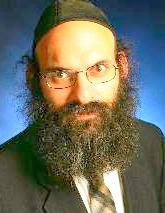This question has been raised a number of times. Thought it would be helpful to indicate my understanding of how this should be handled.
The description is not of a particular individual - but this is a description of a not uncommonly encountered problem - especially in large families where parents are too busy to properly supervise.
The description is not of a particular individual - but this is a description of a not uncommonly encountered problem - especially in large families where parents are too busy to properly supervise.
Question: A 19 year old woman had been raped by her teen-age
brother for a number of years before she was 12. Her parents were never willing
to acknowledge that their son – who is now married and doing well in kollel - had
a long term incestuous relationship with their daughter. Therefore even though they
did send her to a therapist because of the severe psychological problems that
resulted – she feels betrayed not only by her brother but by her parents and
other authority figures. However she feels that she has gotten passed her
brother's abuse and she says that she understands her parent's failure to
acknowledge what was happening and lack of emotional support and forgives them.
She is now involved in shidduchim – and wants to know
whether she needs to say anything about the rape?
Answer: 1) If there was penetration she cannot marry a Cohen
2) If the therapist feels that there will be minimal impact on marriage and
relationship to her husband and if she will never reveal the information and it
won't come from other sources – Rav Triebitz said that she does not have to say
anything. Rav Sternbuch, however, indicated that it is unlikely that the
information will remain a secret and therefore she should say something before
marriage. 3) On the other hand if a competent therapist thinks that her abuse
will have an impact on marriage – she should not keep it a secret and she needs
to reveal it before marriage. 4) She should not say anything unless it seems
that the relationship is becoming serious (as noted below from Igros Moshe).
Rav Moshe Feinstein's view is that for serious matters that would probably destroy
the shidduch - if there is no direct question, there is no need to volunteer
the information before marriage. However the future spouse needs to be informed
prior to marriage – even though Rav Moshe Feinstein allows waiting until after engagement.
5) Regarding the kesuba – if she is a baal teshuva then there is no need to
inform the chasan that she is not a besulah. However if he assumes that she is
a besulah than Rav Sternbuch said she needs to inform him – but does not need
to give the reason. If the chasan is aware that she is not a besula it is still
permitted to write in the kesuba that she is (see the following Igros Moshe).
שו"ת אגרות משה אורח חיים חלק ד סימן קיח
ובדבר אם צריכה את להגיד להבחור שירצה לישא אותך
לאשה, ודאי את צריכה לגלות לו, אבל אינך צריכה להגיד לו בראיה והכרה דפעם ראשונה שעדיין
לא ידוע אם ירצה בכלל השידוך וממילא אסור אז להגיד לו, ורק אחרי שתדעי שרוצה לישא אותך
בברור שכבר אמר לך ודבר בדבר הנישואין, צריכה את לומר רק בזה שנזדמן איזה פעם בשעה
שלא היה לך כובד ראש כל כך לעמוד נגד המפתה בדברי רצוי ופתוי הרבה ותיכף נתחרטת ומצטערת
על זה שאירע דבר כזה עד שיכיר מדבריך שאין לו לחוש שיארע גם כשתהא נשואה לו, ואז מאחר
שהוא רוצה בך מפני שהכיר המעלות שלך לא יחזור בו בשביל זה שאירע איזה פעם מאחר שיכיר
אותך לנערה שומרת תורה ומצותיה שיש להאמין שלא חשודה את שוב בזה ותהי' אשה מסורה לבעלה
כדין התורה.
בדבר כתיבת הכתובה אין צורך להגיד למסדר הקידושין,
כי מאחר שהחתן יחתום על הכתובה הרי הסכים לכתובת בתולה ושוב ליכא קפידא ומחוייב בכתובת
בתולה אף אם באמת אינה בתולה אם לא הטעתה אותו, מאחר דרצה להתחייב בכתובת בתולה לא
גרע מתוספת כתובה, וכשניסת להבועל עצמו יותר נכון לכתוב כתובת בתולה ולכתוב בתולתא
והטעם מבואר בתשובותי באגרות משה חלק אה"ע סימן ק"א ויפה עשה הרב ההוא, אך
גם בבעולה מאחר אם נבעלה מישראל כשר שכשרה לכהונה שאינו נוגע לענין איסור אלא לענין
סך הממון אם החתן יודע ורוצה בכתובת בתולה יכולים לכתוב כתובת בתולה, וממילא אין לגלות
זה להמסדר קידושין ולא לשום אדם כדכתבתי לעיל.









